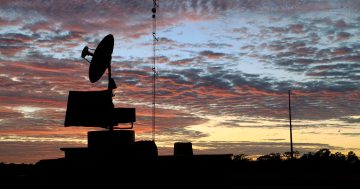Reviewed by Rama Gaind.
Edited by Ashley Hay, Text Publishing, $27.99.
 Here is a wide-encompassing exploration of some of the upheavals and interruptions that are inevitable with our increasingly technological world.
Here is a wide-encompassing exploration of some of the upheavals and interruptions that are inevitable with our increasingly technological world.
As a result, our life has certainly being disrupted. GR64 competently examines some of the turmoil and obstacles.
What future will this disruption shape as the digital revolution continues to unleash radical change on industries, economies, politics and institutions. Hay examines ‘new perspectives for a new age’ in the introduction titled, ‘Seeing through the digital haze’.
Then there’s this question: is the brave new world of Facebook, Amazon, Apple, Netflix, Google and Uber one of decentralisation, anti-elitism and individual freedom – or surveillance, monopoly and control?
Technological innovation used to refer to personal pocket-sized devices and labour-saving hacks. Now, it underpins a global web of interactions – sometimes – beyond our understanding and often beyond our control.
Is this new world utopia, dystopia or something in between? Will it define us and are we able to regulate it? From how we ‘communicate to how we vote, how we collaborate to how we consume, how we imagine to how we die: the way to live has been transformed. This is life, disrupted’.
With many technologies at “our fingertips”, the features from many contributors to GR64 looks at how we are “better connected and our information ecosystem is richer, but new opportunities for manipulation and abuse are also emerging. We’re starting to see the enormity of changes and effects that are already underway, and their ethical moral and social consequences are huge”.
As Hay points out: “change, as always, is the only constant. In the future, the vapour trails of our current digital emissions may look like pollution. They may look like the place-markers through which we simply asserted who and where we were. They may look like the next step of advance and evolution. Or they may look like a warning – thickening; quickening – we would do well to heed”.











